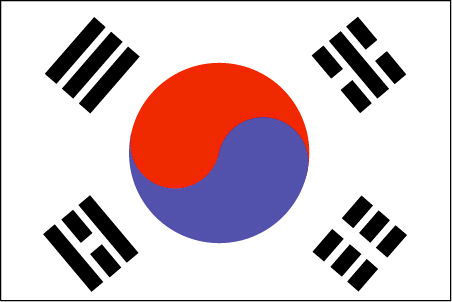top of page

South Korea Trademark Registration
TRADEMARK LAW OF SOUTH KOREA
Trademarks and service marks are protected in the Republic of Korea under the Trademark Act; and for such protection, marks should be registered with the Korean Intellectual Property Office (KIPO). The use of a trademark is not a prerequisite for filing an application for the registration of a trademark. Although the Trademark Act does not protect unregistered marks, it does provide protection of well-known or famous marks by restricting the registration of an identical or similar mark. There is no course of action against infringement of a well-known or famous unregistered trademark under the Trademark Act, but action may be pursued under the Unfair Competition Prevention Act.
UNREGISTERED TRADEMARK
The trademark regime is based on a first-to-file system rather than a first-to-use system.
Therefore, the actual use of a mark is not a precondition for obtaining trademark registration; nor does it provide, in most cases, any priority or advantage for registration. The only unregistered marks that are accorded some degree of protection under the Trademark Act and the Unfair Competition Prevention and Trade Secret Protection Act are those recognized as well-known marks in Korea.
If a trademark acquires wellknown status, the owner is entitled to prevent others from registering or using similar or identical marks, and/or from causing consumer onfusion with other goods or services.
The Trademark Act effectively protects wellknown marks by prohibiting the registration of:
• trademarks that are identical or similar to another person’s trademark which is well known among consumers as indicating the
goods of that other person, and that are used for identical or similar goods (Article 7(1)(ix));
• trademarks that are likely to cause confusion among consumers as to the origin of the goods or services, since they are recognized as designating the goods or services of another person (Article 7(1)(x));
• trademarks that are likely to mislead or deceive consumers as to the quality of the goods (Article 7(1)(xi)); and
• trademarks that are identical or similar to another person’s trademark which is well known among domestic or foreign consumers
as indicating the goods of that other person, and that are used for the unfair competitive purpose of gaining improper profit or
damaging that other person (Article 7(1)(xii)).
REGISTRABLE MARKS
The Trademark Act defines a ‘trademark’ as any of the following which is used on goods relating to a person’s commercial activities in order to distinguish its goods from those of others:
• a sign, character, figure, three-dimensional shape or any combination thereof; or
• any combination of colour with any of the above items.
Thus, sounds or smells (whether alone or as elements) cannot be protected as trademarks.
Also, colours in themselves cannot be protected as trademarks: protection is available only where a colour is combined with another component such as a sign, character, figure or three-dimensional shape. However, in order to be registrable, the combination must be distinctive and not commonplace or simple.
TERM OF PROTECTION
A trademark registration is for an initial term of 10 years which can be renewed perpetually upon filing a renewal application without having to prove the use of the trademark.
There is currently no substantive examination system for renewal applications, and thus it only takes approximately two to three
months to complete a renewal procedure.
PROCEDURE OF REGISTRATION
Any person who uses or intends to use a trademark in the Republic of Korea may file an application for the registration of a trademark. Although the Korean Trademark Act has adopted a registration system, the applicant should have a bona fide intent to use his/her trademark in the Republic of Korea.
All trademark applications are subject to substantive examination by the Korean Intellectual Property Office (KIPO) before a
registration or rejection is to be issued. A decision on a trademark application is normally issued within about six to eight months of the filing date.
If the examiner finds no reason to reject the application, a decision will be issued to publish the application in the official Trademark Gazette for public inspection and opposition. If no opposition to the registration is raised within a 30-day period, and if the examiner has no other reasons to reject the application, the mark will be granted registration.
It generally takes eight to 10 months from the application date for a mark to be registered, if no opposition is raised.
Anyone may file an opposition to a trademark application within 30 days of its publication in the Trademark Gazette. This period cannot be extended, but if an initial notice of opposition is filed within the 30-day period, the opponent has an additional 30 days in which it may amend, add to or supplement the grounds for opposition.
If there is no opposition to the registration during the publication period, or if no successful opposition is lodged, the registration will be granted. The applicant must pay a registration fee to KIPO within two months of receiving notice of the grant. Within a few days of receiving payment, KIPO will issue a certificate of trademark registration.
Contact us to know more about the procedures to register your brand in South Korea
bottom of page

